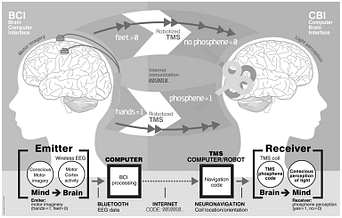[dropcap]W[/dropcap]hen Danish engineer Peter Laurits Jensen invented the loudspeaker in December of 1915, it revolutionized the way we listen to music. However, no one could have predicted who would benefit the most from Jensen’s invention: Adolf Hitler. The Nazi party brainwashed German citizens by installing loudspeakers in every public place they possibly could. That way, no one could run, and no one could hide from the constant blaring of Hitler’s booming voice over the speakers. The thunderous speeches of Nazi propaganda seemed to come from everywhere, surrounding the Germans. We all know the results of the brainwashing: the Holocaust, World War II, and the death of over 70 million people worldwide. A harmless new way to communicate led to the destruction of so many lives.
This certain connection was made by What Culture, among other seemingly harmless inventions that turned evil. In my opinion, the dastardly uses Hitler found for the loudspeaker have the worst results by far.
Nothing has topped these horrible numbers. No means of communication has become the means of more deaths than that of the Holocaust. Not yet anyways. You may not know it, but soon enough, there will be technology that will allow us to communicate in ways we’ve never imagined, while behind our backs will be destroying lives in ways we don’t want to imagine.
Welcome to the world of computer-empowered telepathy.
Now, before you immediately stop reading this, shut off your device, burn it and sprinkle the ashes of it around your backyard, all while chanting, “Sci-Fi, Sci-Fi, Sci-Fi…” as you normally would, just relax. The word “telepathy” is not referring to magical powers, the X Men, or Cosmo the Spacedog.
The Process
This kind of telepathy is an experimental, scientific process involving computer-brain interfaces (CBI), and their counterpart, brain-computer interfaces (BCI). At this point in time, only a few of these tests have been done, one of the most recent being one conducted by a team comprised of scientists from across the globe. The team includes, but is not limited to Carels Garu from Starlab in Barcelona, Romuald Ginhoux from Axilum Robotics in France, and Alvaro Pascual-Leone from Harvard Medical School. They posted their findings from their 2014 test in the science journal PLOS ONE.

Image by Carles Grau, Romuald Ginhoux, Alejandro Riera, Thanh Lam Nguyen, Hubert Chauvat, Michel Berg, Julià L. Amengual, Alvaro Pascual-Leone, and Giulio Ruffini / CC BY 4.0
The basics of the test was this: four subjects, one “emitter” in India, and three “receivers” in France were all equipped with earplugs and eye masks. The emitter would move their hands and feet, translating their movements into 1’s and 0’s, which would be sent to each receiver in an email, translated into flashes of light, which would be translated back into binary, and finally into letters, spelling out “hello” in various languages.
I don’t blame you if you don’t think of this as telepathy.
Yes, this process took a while (about an hour and ten minutes for each message). Yes, there was a lot of translating involved. Yes, the subjects technically didn’t think the messages to each other. But, everything has to start somewhere. Imagine when the telegraph was invented in the 1840s. You had to tap out Morse code on the emitter, and the receiver would have to translate the code into a message they could actually read.
Can you see the similarities? Both computerized telepathy and the telegraph are the earliest steps in a new means of communication. Both require a lot of codes and translation. Both have long, drawn-out processes that could use some improvement.
The Possibility

Image by Tellegee / CC BY-SA 4.0
The final, and most dangerous similarity between the telegraph and telepathy is their potential for rapid development.
The first telegram was sent in 1844, and less than 140 years later, Motorola released their first commercial mobile phone. Even more interestingly, Know Your Mobile states that as of 2008, more people in the world had mobile phones than toilets. (Some people have odd priorities) It only took a century and a half for the prolonged, tedious process to become a portable device that almost anyone had access to. What if the same was true about computerized telepathy? What if in 150 years, we could buy a device that allowed us to talk to each other without talking?
Some say it’s possible, some say it’s not. It’s not my job to say whether or not scientists can make this happen. It’s my job to convince you, the reader, that if they can, then our lives are in serious danger.
The Benefits
Now, before we jump right into the horrible things this technology has to offer, let’s take a look at how it could possibly benefit us. Most of these benefits revolve around one central idea: communicating ideas that you just can’t explain with words. This could be useful in medicine, where “those who might not be able to speak or have sensory impairments” could actually communicate with their doctors and vise versa. Pascual-Leone, the team member from Harvard is quick to point this potential medical breakthrough out. What he later admits though is invasive brain stimulation is “theoretically in the realm of possibility.”
[perfectpullquote align=”right” bordertop=”false” cite=”I don’t blame you if you don’t think of this as telepathy.” link=”” color=”” class=”” size=””][/perfectpullquote]
This means some random person, with the access to the right technology, could connect directly to the sensory-impaired patient and their doctor’s conversation. Talk about ruining doctor-patient confidentiality.
Yet another study on this topic explains that “knowledge about one’s own fine motor control is completely opaque to the subject, and thus cannot be verbalized,” meaning a surgeon or violinist couldn’t just tell someone how they move their fingers if they try to teach someone how to play the violin or conduct a cholecystectomy. Telepathic technology could fix this, but the problem remains the same. The same study says that their best results have come from two Brain-Brain Interfaces: Both of these BBIs rely on stimulation technologies that are either invasive or experimental in humans.” Now BBIs are slightly different from CBIs or BCIs, the concept is the same.
Everyone could get free violin/surgeon lessons, or could interfere with legitimate lessons. That gives us either a world with violinists and surgeons, or a world without them. While this isn’t necessarily dangerous, it is inconvenient.
The Danger
Now, I know what you’re thinking (get it?), it would be so cool to have telepathy, computerized or otherwise. It would be awesome looking into your friends’ heads and knowing what they think about you. It would be incredible if you could know whenever anyone was ever lying to you.
You are dead wrong.
The fun of being able to read minds would last about two minutes. After that, you’ll wish you’d never decided to strap on that CBI. You don’t want to know what your friends think. You don’t want to know when others are lying to you. You do not want to use computerized telepathy. Period.
[perfectpullquote align=”left” bordertop=”false” cite=”if they can, then our lives are in serious danger.” link=”” color=”” class=”” size=””][/perfectpullquote]
The chances of things going wrong with this technology are too high to justify any reasons to continue its development. If you still aren’t convinced, the following is a list of scenarios describing what would happen to us depending on who had access to computerized telepathy, proving that no matter how you slice it, this is some pretty dangerous stuff.
Scenario #1: Only The Top Brass Has Access
It would be wise to only let this kind of technology to be used by the government, CIA, and world leaders, right? Well sure, if you want to start a nuclear war.
Imagine a United Nations meeting where everyone knew what everyone else was thinking. Some of our leaders have a hard enough time as it is saying appropriate things. It would almost be impossible to prevent them from thinking the kind of things they say, or worse. The insides of their heads must be swarming with insults, slander, and other things best not to say out loud. With telepathic technology, they wouldn’t even have to, and representatives from every single one of their allies (or possible enemies) would know what kind of things our leaders think about them.
Being telepathically insulted doesn’t sound like the best reason to start a war, but crazier things have happened. History UK features an article about the Pig War, an enormous political struggle between the US and Britain over the death of one pig. The Pastry War was fought between France and Mexico over the destruction of a few baked goods. And no joke, Spain fought a war against Peru and Chile over the control of bird guano deposits. PEOPLE DIED over bird poop. If people can justify war with what comes out of an animal’s rear end, then it’s a sure bet that war can come out of insults.
And nowadays, war doesn’t necessarily mean guns and soldiers. We have much more firepower than that. Business Insider shows that there are 14,995 nuclear weapons worldwide, including 215 in the UK, 6800 in the US, and 7000 in Russia. And remember, this is only in 2017. 150 years ago, the idea of a nuke was nonexistent. 150 years from now, the numbers could grow exponentially. Not only would the quantity increase, but in that amount of time, so would quality; we could increase nuclear weapons’ range, blast radius, and accuracy.
Isn’t that comforting?
The people we are supposed to look up to can’t even handle the responsibility that telepathic technology brings to the world. If they can’t, how are we supposed to?
Scenario #2: No One Knows Who Has Access
Here’s a question that’ll give you nice, warm feelings. What if the person next to you could read your mind, and you had no idea they were doing it? You would never know who to trust, who to avoid, or who knew more about you than yourself. How would that feel?

Image by Adrignola / CC BY-SA 2.0
Creepy, disturbing, and freaky.
Despite the eerie applications this would have, it may happen before the 150-year mark. How? As it progresses, computerized telepathy will be designed mostly by scientists and engineers. If you’ve ever taken an engineering class, you know firsthand that engineers absolutely LOVE the engineering design process. I refer to you step six of the diagram to the right: TEST PROTOTYPE.
When a word or phrase is all caps, underlined, bolded, and in italics, it is usually important. Step six is the step that allows this creepy scenario to eventually be possible.
In order to have a decent product, engineers need to test it over and over and over again. They also need subjects to test this technology on. And to get the most accurate results, it would have to be tested around other people, without their knowing.
Is this scenario testing your patience yet?
Long story short, during the development of computerized technology, you never know who could be testing it. Having a variety of demographics test the technology would ensure the most world-wide compatibility, but it also means that these test subjects will be all over the world.
No matter where you are, no matter where you live, you will never be able to hide from this. At this point in time, please reread the first paragraph. Before telepathic technology is even released, it could be comparable to Adolf Hitler.
Now, this scenario may be scary enough to make you sleep with a nightlight every single night from now on, but it isn’t technically dangerous. That is, as long as no one ever accuses anyone of ever being a test subject. If that would happen, it would parallel another event in history where people accuse others of having powers they may or may not have had: the Salem Witch Trials. Twenty men and women were killed because everyone thought they were using witchcraft.
How many do you think would be killed in this scenario?
Scenario #3: No One Has Access (legally)
This scenario would be the procrastinators’ fault. Say the law is totally fine with scientists developing telepathic technology, but, as soon as it comes out, they put the lid on it. History has shown that this doesn’t work. Prohibition was a complete failure, as the ban on alcohol actually increased crime in the US. If computerized telepathy was fully developed before it was made illegal, it would be impossible to enforce the law completely.
As people figure out ways to evade the ban, the same problems found in other scenarios will occur; issues with government, issues with inaccurate accusations, and issues with the community. Each issue has the potential to cause hundreds of thousands of deaths, if not more. On top of all that, crime rates would be at an all-time high, a side effect that would actually be caused by the ban. Making this process illegal will do nothing to save us.
Scenario #4: Everyone Has Access.
The final, and possibly most dangerous scenario would be a world filled with mind readers. The education system would go down the toilet, as the simplicity of cheating would increase tenfold. Think of how taking a test would go. Every single student could secretly collaborate on answers, or even go as far as take the answers directly from the teacher. Kids would no longer have to study, but they would no longer learn anything. With no educated young adults to replace the aging working class, the economy—not just America’s mind you, but the entire world’s—would also crumble.
No explanation is necessary for how that would be bad for us.
In addition, bullying would become an even greater problem. Deep down, you know that you think terrible things about some people, we all do. But, as long as we never say them out loud, they never hurt anyone. That convenience will be destroyed in about 150 years, as computerized technology makes its way into the world.
MindTech published an article on “Artificial Telepathy.” While it isn’t the same as computerized telepathy, and probably isn’t real, as long as this technology remains invasive, there’s really no difference for the possibilities. The article says, “Like a perverted phone caller, a hostile person with this technology in hand can call at any time of day, all day long.”
When and if telepathic technology is available to the common man, all of the insults, criticisms, and just plain mean things we think about people will be automatically sent to their brains. Many people would be under a constant barrage of others giving them crap.
They would never be able to never run, and they would never be able to hide from the laughter of the world.
When we hear things over and over and over again, we start to believe them. Lynn Hasher posts her team’s results of a study relating to this on ScienceDirect. Their subjects began to believe obvious lies simply by being exposed to them again and again.
When we hear things over and over and over again, we start to believe them. Lynn Hasher posts her team’s results of a study relating to this on ScienceDirect. Their subjects began to believe obvious lies simply by being exposed to them again and again. (Even though this study wasn’t a lie, you probably are more inclined to believe its results now that you’ve read it twice.)
Think again back to Hitler and his loudspeakers. The German population would never have imagined doing the things that they did during World War II. But, the perpetual presence of Nazi propaganda altered the way they perceived things. They became inclined to believe that Jews were truly responsible for Germany’s loss in World War I, even though they knew it wasn’t true.
What would victims of telepathic bullying think, if told enough times?
That they’re worthless, or weak, or fat, or stupid, or garbage that doesn’t belong anywhere. When we hear things over and over and over again, we start to believe them. Even if victims had complete confidence in themselves, an ample supply of telepathic insults could convince them of anything. Sadly, this would have one unfortunate result:
Suicide rates worldwide would skyrocket.
When we hear things over and over and over again, we start to believe them. If enough people thought of someone as good for nothing, they would act accordingly.
The Implications
So far, we’ve covered how computerized telepathy has no positive place in our world. Having access to this kind of technology would make the world a much more frightening place.
We’d either blow ourselves up, (which would kill people), accuse others of having abilities they may or not have, (which would kill people), start a crime wave more intense than that of probation, (which would kill people), or have a poor, uneducated lazy world of cheaters, (who would kill themselves).
The story doesn’t end any differently no matter who has access. People are going to die, by the hundreds, thousands, millions, or even billions.
So what can we do to change things?
Well, seeing how telepathic technology probably won’t come out for another century and a half, very few (if any) people reading this today will live to see the terrible day that will be. So first of all, you can rejoice that you’ll be able to dodge that awful bullet. Be happy that you can avoid whatever suffering comes out of computerized telepathy.
Your descendants may not be so lucky.
It may be your kids, it may be your grandkids, it may even be your great grandkids. Sooner or later, there will be a generation that will be forced to face the horrors of this technology. They won’t be able to escape it, they won’t be able to hide from it. Just like the thunderous voice of one particular German dictator, nothing will be able to rid them of it. We need to prepare ourselves, and our descendants, for that unfortunate day.
It’s as simple as training your brain.
Teach yourself to mentally insult a little less. Who knows? You may hold some governmental position someday. You wouldn’t want to be responsible for the first (and possibly final) worldwide nuclear war, would you? Even if you aren’t granted authority over others, you still have the power to make terrible changes in other people’s lives. Be mindful of how your insults—both out loud and in your head—might affect people. Every day, strain to think one less condescending thought about someone. Soon enough, you won’t even miss it.
Don’t jump to conclusions. If someone is acting a little weird, never assume the worst. They probably have a perfectly good reason for doing whatever they’re doing, even if it might seem unsettling to you. If you judge their actions before they are ready to explain themselves, they’ll never have the opportunity. Sure, you’ll probably never have the urge to lynch someone because you’ve accused them of being a test subject, (or a witch for that matter) but there is going to be people in your life that you are tempted to lump into a stereotype. Be challenged to undo the assumptions you’ve made and give people another chance.
Try not to want what you can’t have. We aren’t three years old anymore. If mommy says no splashing in the bathtub, most toddlers’ immediate reaction would be to splash. But you’re better than that now, right? You’ve never wanted to break a rule just for the sake of breaking it, right? You know what the answer is. When probation started, it only increased the demand for alcohol. If and when telepathic technology is made illegal, you need to be ready to accept the law and not want what would obviously harm you. Start small, by following everyday rules. That doesn’t mean you can’t have fun, just please strive to know your intentions.
Be honest. Even if cheating becomes less popular than working hard, know that the results of the easy path will never compare with doing it the truthful way. Remember that you gain more in life by keeping true to yourself and others. Honesty really is the best policy.
Finally, never let anyone get you down. When we hear things over and over and over again, we start to believe them, but that works both ways. Focus on the good qualities in your life and within yourself, then actually take the time to remember them. If it means constantly repeating them again and again in your head, go ahead and do that. Shield yourself from the negative things around you, stay calm, and remember that there is always hope.
Above all, spread the word. Share with your family and friends how big a threat computerized telepathy poses to humanity. Teach the future generations how to train their brains to think positively, as their thoughts may be the ones that have the potential to make a huge difference on mankind.
We can’t stop telepathic technology from being developed, that is inevitable. What we can do is not let it destroy us.
[perfectpullquote align=”right” bordertop=”false” cite=”It’s as simple as training your brain.” link=”” color=”” class=”” size=””][/perfectpullquote]
Together, we can show this technology that we will not take their subjection lying down. We can stand up against any threats computerized telepathy may present. And we can prove to ourselves that we are smart enough not to create a device that will lead to our destruction!
(Also while you’re at it, reread that last paragraph out loud, while listening to the National Anthem. It makes you sound really powerful.)
Thank you.
Featured image by Pixabay / CC0





studentblogger
This blog was extremely well thought out (and thought-provoking) with a surprisingly positive message at the end. I really enjoyed reading it. Not to be that person, but there was one thing I noticed: Did you mean to say prohibition? I think you might’ve accidentally referred to the “demand for alcohol” as probation.
StudentBlogger
This was by far the weirdest topic on this website but it was really well written.
StudentBlogger
This post was both amazing and absolutely terrifying at the same time.
Good job!
StudentBlogger
I really enjoyed this article. I like how you added some humor into it, making it more fun to read, and went into depth on both sides so there was no bias. This was really interesting.